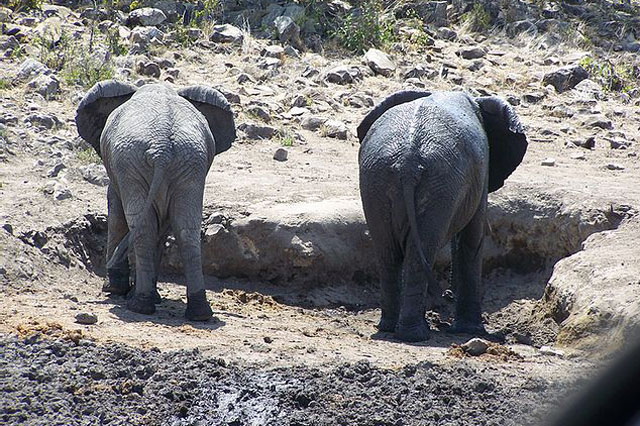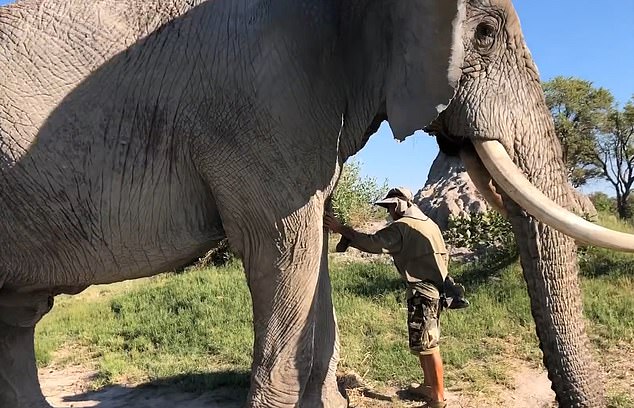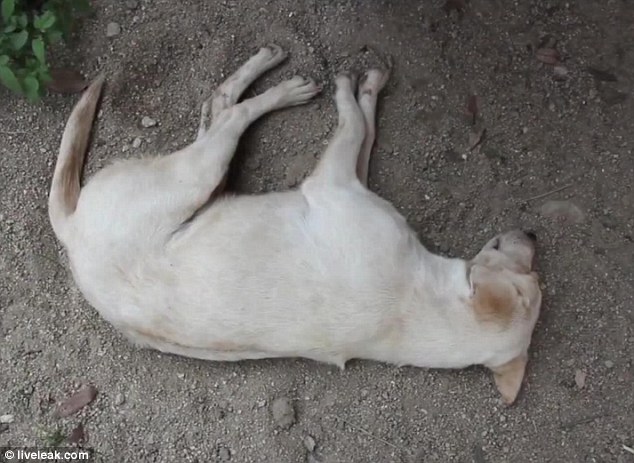Anyone who has ever visited France will not have failed to notice that there are stray, sickly cats in almost every town and village! Most visitors are astounded, as they imagine France to have similar animal welfare structures in place as the United States and the United Kingdom. This simply is not true. The situation in France is dire for cats, especially those abandoned (2 pictures below).
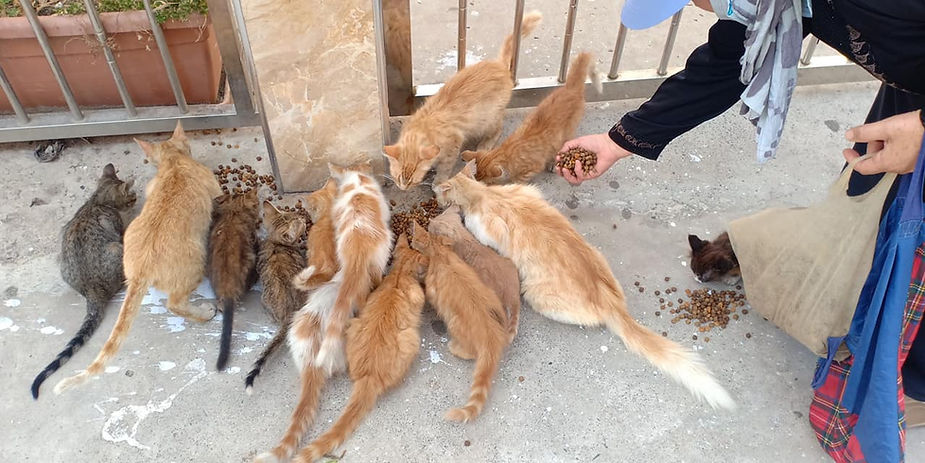
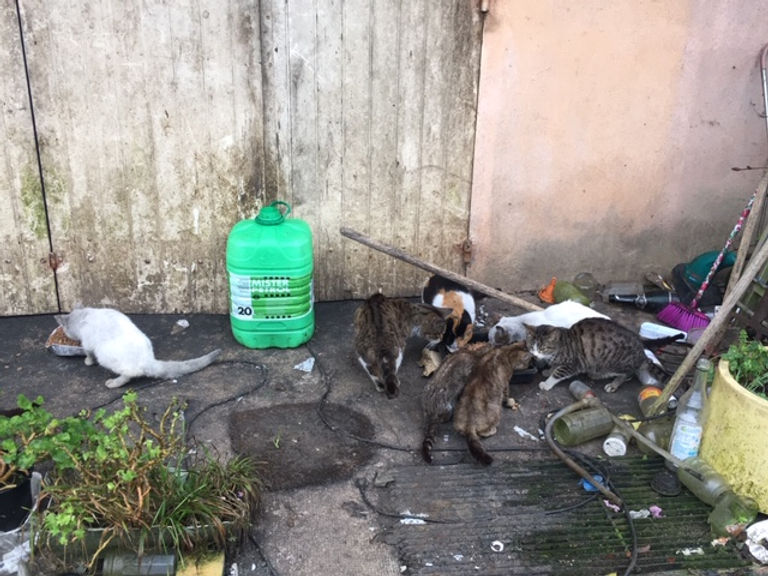
Cats are at the bottom of the care list, even though cat ownership in France now stands at nearly double that of dogs, an estimated 13.8 million! 100,000 are abandoned every summer, it is thought that at least a further 90,000 are euthanized simply because of lack of space.
What is going on? Why is France’s record in animal welfare, in particular of cat welfare, so poor?
First, many people still think it unnatural to have a cat neutered. This is also the case for dogs. Dogs roam the street and cat colonies are huge (picture below), creating terrible issues in villages with sickly cats everywhere (2nd picture below).
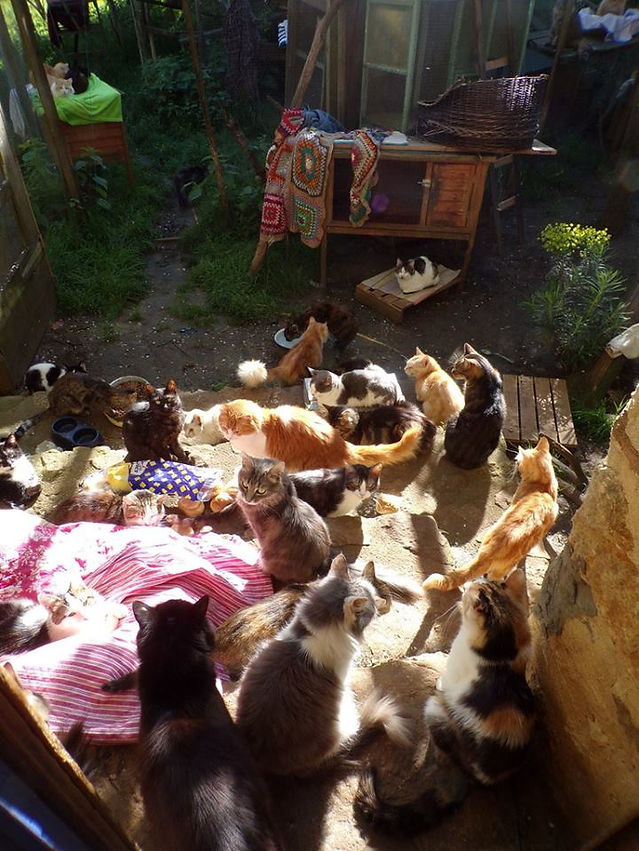
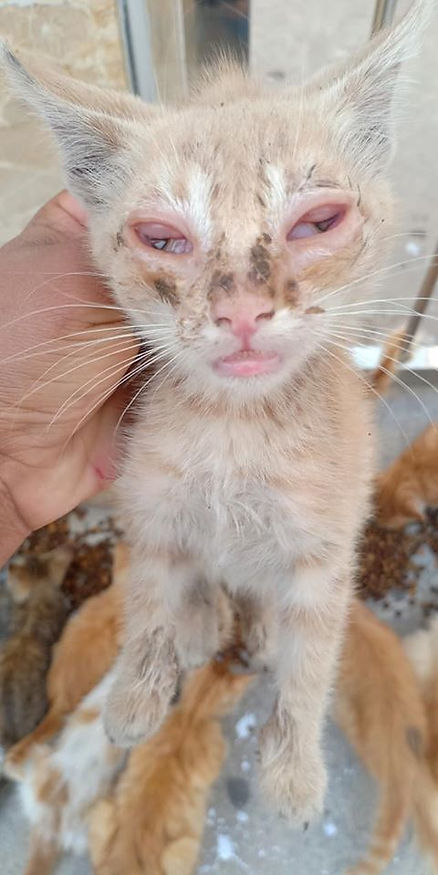
It is the norm to find kittens dumped in dustbins with the daily rubbish. They are lucky if they are found and rescued. Often they still have their umbilical cords attached.
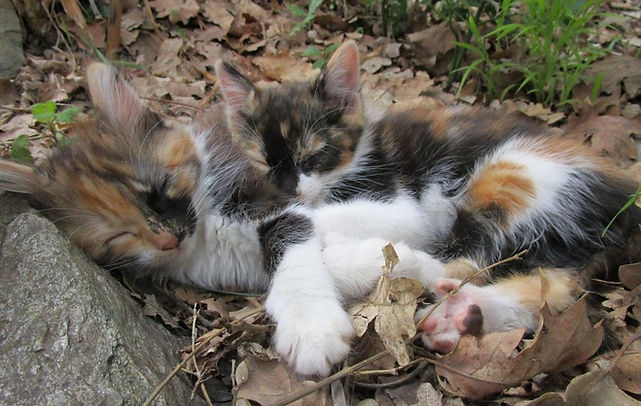
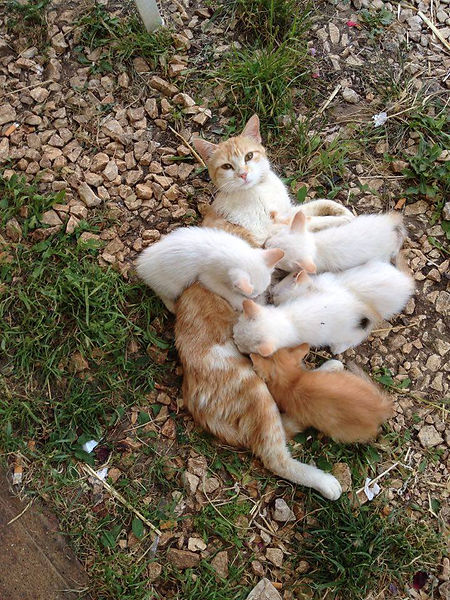
Another problem is that animal charities are numerous, but often contribute to the animal welfare problem. Anyone can set up a charity in France, most animal charities are set up by people with good intentions, but who have no competence or knowledge of the species they are trying to help. Sanctuaries are often crowded and dirty. Sometimes cats and dogs are left together too long without being sterilized and end up breeding. Too often the charities set up to help animals do more damage than good.
In France, hunters have special rights and hunting is considered a tradition. This is the case even though only 2% of the population agree with the hunting community. The government gives hunters special rights and sometimes even huge grants, whereas animal protection charities receive literally nothing from government, not a centime!
Hunters have the right to enter property unless you take a very long route of banning them from your property. At Chats du Quercy, this is what we have done on our land. But then you are then targeted by them.
Some people have had their car tyres burst. One of our volunteers had all the wheel nuts of her car loosened. Luckily she noticed that the car was behaving oddly and she stopped before she was harmed.
This is a difficult photo to look at, but it is our reality here. It is a photo from another hunter reaction to someone who didn’t agree with their actions.
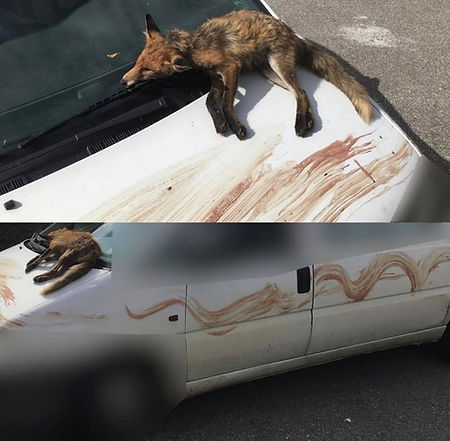
These are classic acts of vengeance from the hunting community. We have installed surveillance cameras all around our property to catch anyone who tries these atrocities.
Many town mayors are not cat lovers and are hunters. Yet it is only with the town mayor’s permission that a charity can work. Logically, you’d think they’d be happy that an animal charity is stepping up to control the population of cats. But their usual way of dealing with the feral cats is to trap them and give them to the hunters either for target practice or to train their hunting dogs in enclosures where they can’t escape and they are torn apart – alive!
I think I have said enough for you to get a picture of the horrific suffering that many cats experience. Here at Chats du Quercy, we believe that cats are are one of the most inspirational and resilient animals you are likely to meet. Every year, we directly help more than 400 cats and kittens and respond to more than 1500 other cat welfare cases.
In France, Chats du Quercy is unique. Each cat receives the best possible care and attention from the first day. Our contracted vet practices a refreshingly holistic approach to the cats in our care, allowing us to more fully understand each individual cat’s needs and characters. Chats du Quercy’s vision is to inspire and mobilise society to create a world in which all animals enjoy as a minimum, five essential animal freedoms, something unheard of in the French community.
I hope I have given you insight into life for cats (and other animals) in France.






